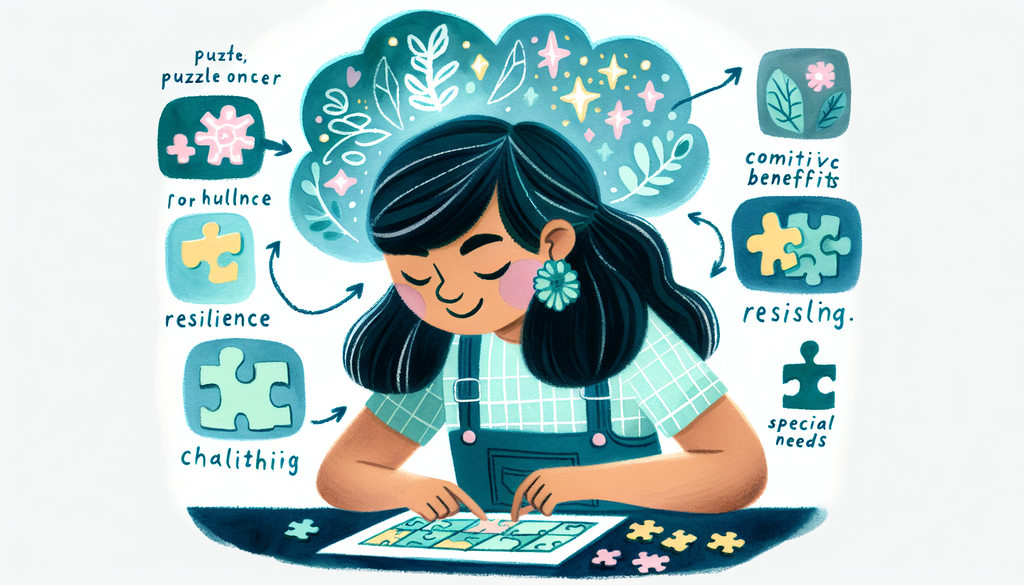Puzzle Power: Cognitive Benefits of Puzzles for Children with Special Needs

Puzzles are a fantastic tool for developing children’s cognitive abilities. For children with special needs, puzzles can particularly offer a variety of benefits, from boosting hand-eye coordination to enhancing problem-solving skills. This article delves into these benefits and provides tips on how to successfully incorporate puzzles into your child’s learning routine.
Cognitive Boost
Puzzles engage a child’s brain in a way few other activities can. Solving a puzzle requires concentration, creativity, and logic — essential skills that can be developed with consistent practice. These activities can also boost a child’s spatial awareness and critical thinking abilities and, most importantly, provide an opportunity for children who learn differently to shine. Read more about multisensory learning and why it works here.
Improved Motor Skills
Assembling a puzzle enhances a child’s hand-eye coordination. It puts their fine motor skills into action as they pick up pieces and fit them into place. Such training is particularly beneficial for special needs children. Read about the importance of occupational therapy in skill development here.
Patience and Persistence
Puzzles offer a perfect platform for fostering patience and resilience in children. They require time and effort to complete, thereby rewarding patience and persistence — valuable life skills that can help them navigate through school, extracurricular activities, and later into adulthood. Learn more about fostering resilience in special needs children here.
Building Confidence and Self-Esteem
Finally, the satisfaction of solving a puzzle is immense, leading to a confidence boost. Especially for special needs children, each completed puzzle serves as a symbol of their abilities and success, fostering a sense of pride and self-esteem.
Choosing the Right Puzzle
When selecting puzzles for your child, consider their interests, abilities, and the puzzle’s complexity. If a puzzle is too challenging, it may discourage your child, but if it’s too easy, it may not hold their interest. Also, look for puzzles that represent diversity and inclusivity, reflecting our diverse world. This post offers great insight into selecting inclusive learning materials.
Conclusion
In the world of inclusive education, every tool and strategy plays a significant role in supporting children’s growth and development. Puzzles are a fantastic addition to this mix, with wide-ranging benefits for children with special needs. So why not give it a try? The next time you’re considering an educational activity with your child, reach for a puzzle. You might be surprised by how much they enjoy it - and how much they learn along the way!
If you found this article helpful, you might want to check out our previous article on Integrating Life Skills into Special Education Curriculum and The Power of Patience: Supporting Dyslexic Learners at Home.